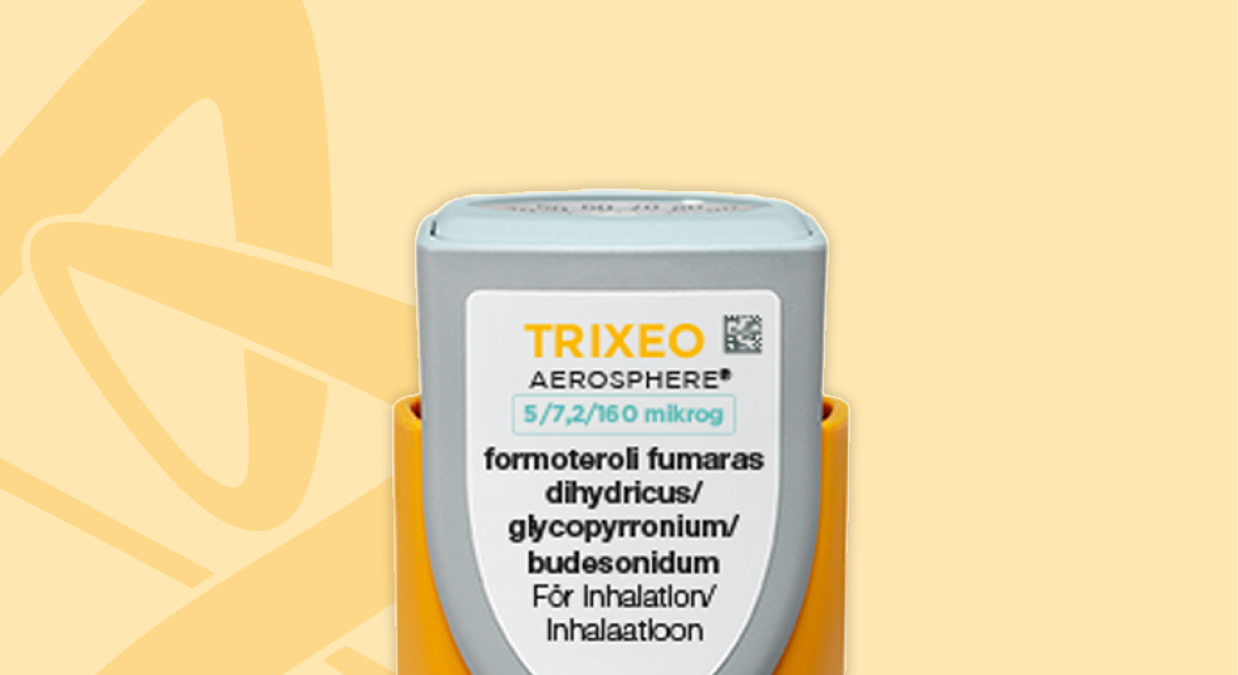UK Approves Trixeo Aerosphere As First Inhaled Drug With Eco-Friendly Propellant
AstraZeneca's Trixeo Aerosphere gets UK approval with a next-gen, low-GWP propellant, cutting its carbon footprint by 99.9%.
Breaking News
May 12, 2025
Simantini Singh Deo

AstraZeneca’s inhaler treatment Trixeo Aerosphere, used for managing chronic obstructive pulmonary disease (COPD) in adults, has now been approved in the UK with a significant environmental upgrade. The UK Medicines and Healthcare Products Regulatory Agency (MHRA) has authorized a new version of the inhaler that uses a next-generation propellant with an extremely low Global Warming Potential (GWP). This new propellant, HFO-1234ze(E), has a GWP that is 99.9% lower than the current standard propellants used in pressurised metered-dose inhalers (pMDIs).
This approval makes Trixeo the first pMDI-delivered medicine to use such an environmentally friendly propellant. With this change, the carbon footprint of the new Trixeo inhaler will be comparable to that of dry powder inhalers, which do not require a propellant. The approval was based on clinical data that showed the new formulation of Trixeo is bioequivalent to the existing version that uses HFA-134a, meaning it delivers the same therapeutic effect. Importantly, the safety and tolerability of the new version remain consistent with what is already known about the medicine.
Trixeo Aerosphere is marketed as Breztri Aerosphere in the US, China, and Japan. This UK approval marks the first step in AstraZeneca’s broader plan to shift its entire portfolio of pMDI medicines to low-GWP propellants by 2030, in alignment with its “Ambition Zero Carbon” strategy. In the UK specifically, the company intends to begin transitioning patients to the updated version of Trixeo in the coming months. The move is especially significant in the context of climate-conscious healthcare. pMDIs currently represent 78% of inhaler use globally and contribute about 0.04% to total global greenhouse gas emissions. In the UK alone, 70% of inhaled medicines are delivered via pMDIs, and the emissions from these inhalers account for roughly 3% of the total carbon footprint of the National Health Service (NHS).
Omar Usmani, Professor of Respiratory Medicine at Imperial College London, said in a statement, “Pressurised metered-dose inhaled medicines are essential for millions of people living with respiratory diseases in the UK. The transition of Trixeo to the propellant with near-zero Global Warming Potential means that healthcare professionals can focus on optimising outcomes for their COPD patients based on clinical need, while also supporting climate goals. Clinicians and their patients shouldn’t feel that they have to choose between the most appropriate treatment and the planet.”
Ruud Dobber, Executive Vice President, BioPharmaceuticals Business Unit, AstraZeneca, stated, “The UK approval of Trixeo Aerosphere with the next-generation propellant is an industry first and a major milestone in AstraZeneca’s commitment to transition our pMDI portfolio to the propellant with near-zero Global Warming Potential. Starting with Trixeo, we are addressing the needs of both patients and the environment in devastating diseases like COPD, which affects hundreds of millions of people and is a leading cause of death globally.”
Tom Keith-Roach, President, AstraZeneca UK, mentioned, “The UK approval of Trixeo Aerosphere with the near-zero Global Warming Potential propellant marks a world ‘first’ and an important step in improving the environmental impact of our portfolio of inhaled respiratory medicines to support the NHS in achieving its net zero carbon goals. Trixeo with our next-generation propellant allows us to address the needs of both patients and the planet.”
In addition to technological changes like propellant innovation, improving patient care can also help reduce environmental impact. Studies show that a large part of the environmental burden from respiratory diseases comes from poor disease control, which often leads to frequent exacerbations and emergency healthcare use. By following clinical best practices and ensuring effective treatment, both patient outcomes and sustainability can be improved. Regulatory reviews for the new version of Trixeo (Breztri) are currently underway in other parts of the world, including Europe, China, and additional countries.
